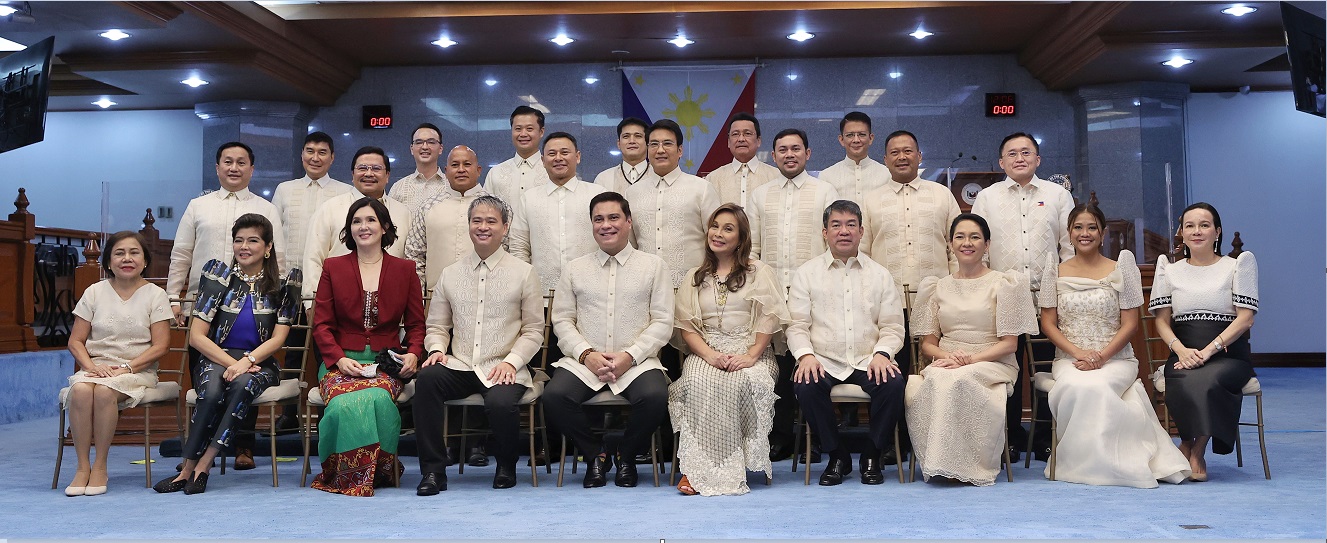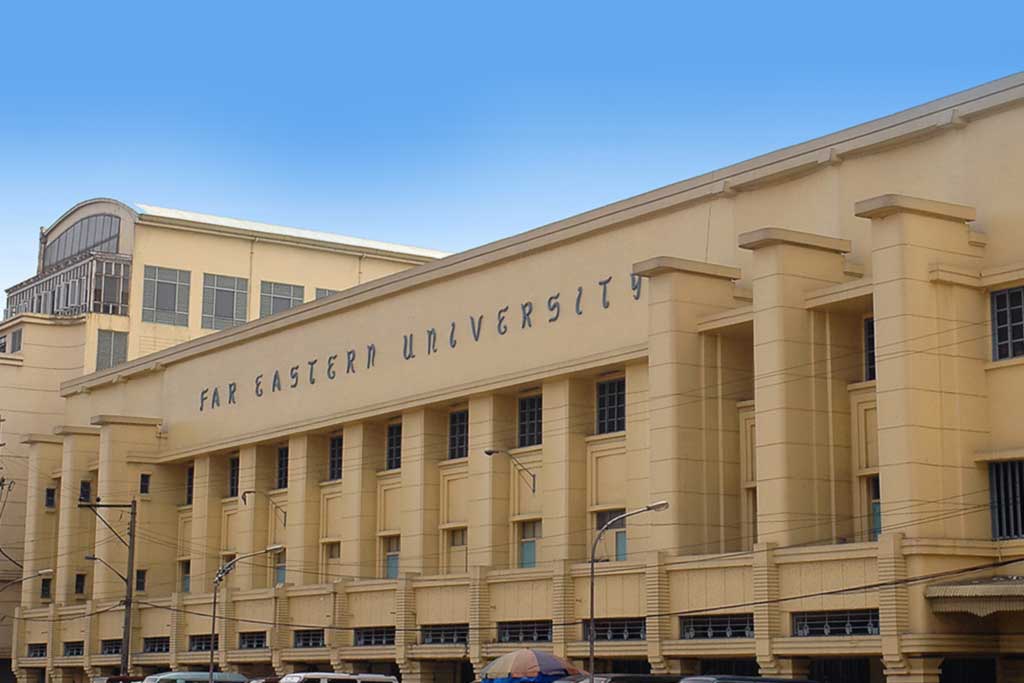|
Neptali Gonzales II
Neptali "Boyet" Medina Gonzales II (born August 29, 1954) is a Filipino people, Filipino politician serving as the Representative of Mandaluyong's Legislative district of Mandaluyong, Lone District since 2019, and previously in the 10th Congress of the Philippines, 10th, 11th Congress of the Philippines, 11th, 12th Congress of the Philippines, 12th, 14th Congress of the Philippines, 14th, 15th Congress of the Philippines, 15th and 16th Congress of the Philippines, 16th Congress. He was also one of the Deputy Speaker of the House of Representatives of the Philippines, House Deputy Speakers during the entire 18th Congress of the Philippines, 18th Congress and has been the Majority Floor Leader of the House of Representatives of the Philippines, House Majority Leader from 2001 to 2004 and again from 2010 to 2016. Early life and education Gonzales was born on August 29, 1954, in Mandaluyong, Rizal (province), Rizal to lawyer Neptali Gonzales, who would eventually become President o ... [...More Info...] [...Related Items...] OR: [Wikipedia] [Google] [Baidu] |
19th Congress Of The Philippines
The 19th Congress of the Philippines (), composed of the Philippine Senate and House of Representatives of the Philippines, House of Representatives, met from July 25, 2022, until June 11, 2025, during the first three years of Bongbong Marcos's presidency. The convening of the 19th Congress followed the 2022 Philippine general election, 2022 general elections, which replaced half of the Senate membership and the entire membership of the House of Representatives. The House of Representatives met in the Batasang Pambansa Complex. The Senate met in the GSIS Building, with a scheduled move to its New Senate Building (Philippines), new building in Taguig indefintely postponed. The 19th Congress was also the first since the 10th Congress of the Philippines, 10th Congress that no senator was from the Liberal Party (Philippines), Liberal Party. Leadership Senate *President of the Senate of the Philippines, Senate President: **Migz Zubiri (Independent politician, Independent), ... [...More Info...] [...Related Items...] OR: [Wikipedia] [Google] [Baidu] |
PDP–Laban
The Partido Demokratiko Pilipino (PDP, ) is a populist political party in the Philippines founded in 1982. It was previously known as Partido Demokratiko Pilipino–Lakas ng Bayan (PDP–Laban) from 1983 to 2024 as a result of a merger with Lakas ng Bayan (Laban). It was part of the country's ruling party coalition from 1986 to 1992 under the administration of Corazon Aquino and the country's ruling party from 2016 to 2022 under the administration of Rodrigo Duterte. Nominally democratic socialist and social democratic, the party has shifted considerably since its first time in power in the 1980s and 1990s. Since Duterte's election as president, the PDP is generally seen to have strayed from its initial social democratic objectives and shifted towards populism and Dutertismo. Officially, Duterte has branded himself, and by extension the party, as sitting on the centre-left to left-wing. However, PDP's policies between 2016 and 2022, which included the Philippine drug war and ... [...More Info...] [...Related Items...] OR: [Wikipedia] [Google] [Baidu] |
12th Congress Of The Philippines
The 12th Congress of the Philippines (), composed of the Philippine Senate and House of Representatives of the Philippines, House of Representatives, met from July 23, 2001, until June 4, 2004, during the first three years of Gloria Macapagal Arroyo's presidency. The convening of the 12th Congress of the Philippines, Congress followed the 2001 Philippine general election, 2001 general elections, which replaced half of the Senate membership, and the entire membership of the House of Representatives. Sessions * First Regular Session: July 23, 2001 – June 7, 2002 ** First Special Session: January 8 – March 1, 2002 * Second Regular Session: July 22, 2002 – June 6, 2003 * Third Regular Session: July 28, 2003 – June 4, 2004 ** Second Special Session: January 5 – February 13, 2004 Leadership Senate * President of the Senate of the Philippines, President: Franklin Drilon (Independent politician, Independent) * President pro tempore of the Senate of the Philippines, Pr ... [...More Info...] [...Related Items...] OR: [Wikipedia] [Google] [Baidu] |
11th Congress Of The Philippines
The 11th Congress of the Philippines (), composed of the Philippine Senate and House of Representatives, met from July 27, 1998, until June 8, 2001, during the 31-month presidency of Joseph Estrada and the first four months of Gloria Macapagal Arroyo's presidency. The convening of the 11th Congress followed the 1998 national elections, which replaced half of the Senate membership, and the entire membership of the House of Representatives. The Estrada impeachment was the highlight of the 11th Congress. Sessions * First Regular Session: July 27, 1998 – June 4, 1999 ** First Special Session: January 4 – February 5, 1999 * Second Regular Session: July 26, 1999 – June 9, 2000 ** Second Special Session: January 3 – February 4, 2000 * Third Regular Session: July 24, 2000 – June 8, 2001 ** Third Special Session: January 1 – February 16, 2001 Leadership Senate * President: ** Marcelo Fernan ( LAMMP), until June 28, 1999 ** Blas Ople ( LAMMP), June 29, 1999 – J ... [...More Info...] [...Related Items...] OR: [Wikipedia] [Google] [Baidu] |
10th Congress Of The Philippines
The 10th Congress of the Philippines (), composed of the Philippine Senate and House of Representatives, met from July 24, 1995, until June 5, 1998, during the last three years of Fidel Ramos's presidency. The convening of the 10th Congress followed the 1995 national elections, which replaced half of the Senate membership, and the entire membership of the House of Representatives. Sessions * First Special Session: June 26 – July 7, 1995 *First Regular Session: July 24, 1995 – June 7, 1996 **First Joint Session: April 1 and June 3, 1996 **Second Special Session: May 13 – June 21, 1996 *Second Regular Session: July 22, 1996 – June 13, 1997 **Third Special Session: August 12 – 30, 1996 **Fourth Special Session: January 6 – 31, 1997 **Fifth Special Session: February 3 – 28, 1997 **Second Joint Session: January 27, February 10, February 24, March 3 and March 10 – 17, 1997 *Third Regular Session: July 28, 1997 – June 5, 1998 **Third Joint Session: February 16 – ... [...More Info...] [...Related Items...] OR: [Wikipedia] [Google] [Baidu] |
Legislative District Of Mandaluyong
The legislative districts of Mandaluyong are the representations of the highly urbanized city of Mandaluyong in the Congress of the Philippines. The city is currently represented in the lower house of the Congress through its lone congressional district. History Mandaluyong, then known as San Felipe Neri, was originally represented as part of the at-large district of the province of Manila in the Malolos Congress from 1898 to 1899. The then-town was later incorporated to the province of Rizal, established in 1901, and was represented as part of the first district of Rizal from 1907 to 1941 and from 1945 to 1972. When Mandaluyong was merged to form the City of Greater Manila during World War II, it was represented as part of the at-large district of Manila in the National Assembly of the Second Philippine Republic from 1943 to 1944. It was part of the representation of Region IV in the Interim Batasang Pambansa from 1978 to 1984, and was grouped with San Juan as the Legi ... [...More Info...] [...Related Items...] OR: [Wikipedia] [Google] [Baidu] |
Filipino People
Filipinos () are citizens or people identified with the country of the Philippines. Filipinos come from various Austronesian peoples, all typically speaking Filipino language, Filipino, Philippine English, English, or other Philippine languages. Despite formerly being subject to Spanish Philippines, Spanish administration, less than 1% of Filipinos are fluent in Spanish language, Spanish. Currently, there are more than 185 Ethnic groups in the Philippines, ethnolinguistic groups in the Philippines each with its own Languages of the Philippines, language, identity, culture, tradition, and history. Names The name ''Filipino'', as a demonym, was derived from the term , the name given to the archipelago in 1543 by the Spaniards, Spanish explorer and Order of Preachers, Dominican priest Ruy López de Villalobos, in honor of Philip II of Spain. During the History of the Philippines (1521–1898), Spanish period, natives of the Philippine islands were usually known in the ... [...More Info...] [...Related Items...] OR: [Wikipedia] [Google] [Baidu] |
The Honorable
''The Honourable'' (Commonwealth English) or ''The Honorable'' (American English; American and British English spelling differences#-our, -or, see spelling differences) (abbreviation: ''Hon.'', ''Hon'ble'', or variations) is an honorific Style (manner of address), style that is used as a prefix before the names or titles of certain people, usually with official governmental or diplomatic positions. Use by governments International diplomacy In international diplomatic relations, representatives of foreign states are often styled as ''The Honourable''. Deputy chiefs of mission, , consuls-general, consuls and honorary consuls are always given the style. All heads of consular posts, whether they are honorary or career postholders, are accorded the style according to the State Department of the United States. However, the style ''Excellency'' instead of ''The Honourable'' is used for ambassadors and high commissioners only. Africa Democratic Republic of the Congo In the Democrati ... [...More Info...] [...Related Items...] OR: [Wikipedia] [Google] [Baidu] |
Bachelor Of Laws
A Bachelor of Laws (; LLB) is an undergraduate law degree offered in most common law countries as the primary law degree and serves as the first professional qualification for legal practitioners. This degree requires the study of core legal subjects and jurisprudence to provide a comprehensive understanding of the legal system and its function. The LLB curriculum is designed to impart a thorough knowledge of legal principles, legal research skills, and a sound understanding of the roles and responsibilities of lawyers within society. This degree is often a prerequisite for taking bar exams or qualifying as a practising lawyer, depending on the jurisdiction. Additionally, the LLB program also serves as a foundation for further legal education, such as a Master of Laws (LLM) or other postgraduate studies in law. Region awarded Bachelor of Laws degrees are awarded by universities in regions including Europe, Australia, China, Hong Kong, Macau, Malaysia, Bangladesh, India, Indonesia ... [...More Info...] [...Related Items...] OR: [Wikipedia] [Google] [Baidu] |
Bachelor Of Arts
A Bachelor of Arts (abbreviated B.A., BA, A.B. or AB; from the Latin ', ', or ') is the holder of a bachelor's degree awarded for an undergraduate program in the liberal arts, or, in some cases, other disciplines. A Bachelor of Arts degree course is generally completed in three or four years, depending on the country and institution. * Degree attainment typically takes five or more years in Argentina, Brazil, Chile, and Peru. * Degree attainment typically takes four years in Afghanistan, Armenia, Azerbaijan, Bangladesh, Brunei, Bulgaria, Canada (except Quebec), China, Egypt, Finland, Georgia, Ghana, Greece, Hong Kong, Indonesia, India, Iran, Iraq, Ireland, Jamaica, Japan, Kazakhstan, Kenya, Kuwait, Latvia, Lebanon, Lithuania, Malaysia, Mexico, Mongolia, Myanmar, Nepal, the Netherlands, Nigeria, Pakistan, the Philippines, Qatar, Russia, Saudi Arabia, Scotland, Serbia, Singapore, South Africa, South Korea, Spain, Sri Lanka, Taiwan, Thailand, Turkey, Ukraine, the United S ... [...More Info...] [...Related Items...] OR: [Wikipedia] [Google] [Baidu] |
Far Eastern University
Far Eastern University (), also referred to by its acronym FEU, is a Private university, private research non-sectarian university in Manila, Philippines. Created by the merger of Far Eastern College and the Institute of Accounts, Business and Finance, FEU became a university in 1934 during the term of its first president, Nicanor Reyes Sr. The first accountancy school for Filipinos, the university has expanded its course offerings to the arts and sciences, architecture, fine arts, education, engineering, computer studies, graduate studies, tourism and hotel management, law, nursing, and medicine. FEU has seven campuses located in Metro Manila, Cavite and Rizal (province), Rizal. It offers programs from elementary, secondary, tertiary, to graduate school. FEU Manila comprises several institutes that offer specific programs. The accountancy program, along with its other Undergraduate education, undergraduate programs, have received the highest Level IV accreditation from th ... [...More Info...] [...Related Items...] OR: [Wikipedia] [Google] [Baidu] |


